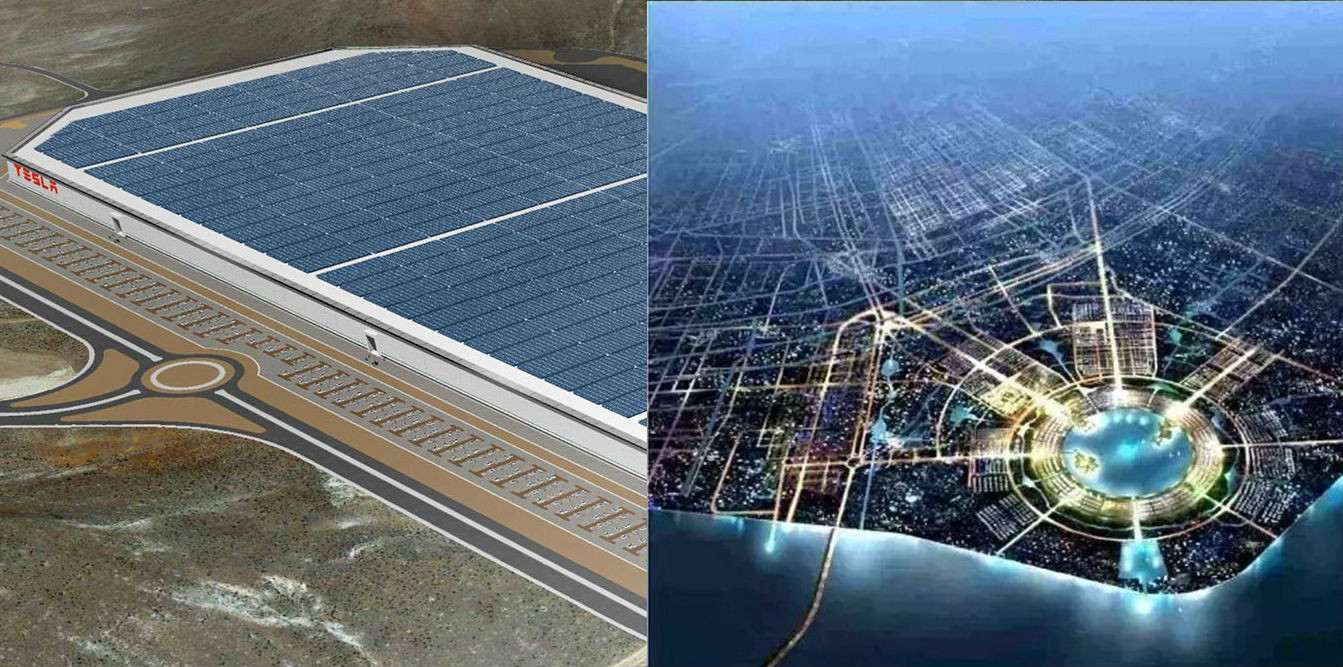
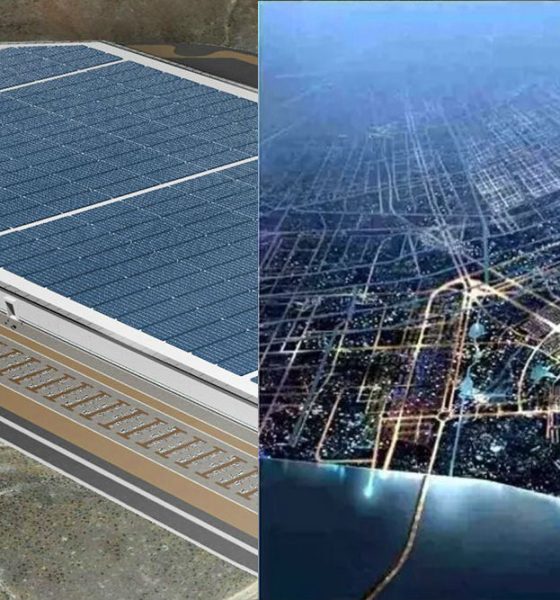
News
Tesla denies report on local battery partner for Gigafactory 3
The construction of Tesla’s Gigafactory 3 in China is moving in a rapid pace. Not long after the facility’s groundbreaking ceremony, the company’s 864,885-square meter plot of land in Shanghai’s Lingang Industrial Zone has become abuzz with activity. If recent reports are any indication, though, it appears that work is also underway to ensure that the company has all the partners it needs to produce batteries on the upcoming facility.
Citing individuals reportedly familiar with the proceedings, Reuters recently published a report suggesting that Tesla has reached a preliminary agreement with China-based battery provider Tianjin Lishen to supply batteries for Gigafactory 3. The publication’s sources have noted, though, that Tesla and Tianjin Lishen have reached no official, definitive deal as of date.
Among the details reportedly being worked out by Tesla and the battery supplier is the size of Tesla’s battery orders, as well as the specific size of the cells that would be produced in the Shanghai-based factory. Inasmuch as news of a possible battery supplier is compelling though, a Tesla spokesperson has denied that any official agreement between the electric car maker and the Chinese battery provider has been reached.
“Tesla previously received quotes from Lishen, but did not proceed further. We have not signed any agreement of any kind with them,” a Tesla spokesperson said.
Lishen, for its part, has noted that there is no agreement between itself and Tesla for Gigafactory 3’s batteries, at least for now.
The update suggested by Reuters’ sources point to Tesla tapping into the local Chinese market for a possible battery partner. So far, Tesla’s sole battery partner has been Panasonic, which has been producing the 18650 battery cells for the Model S and X in its Japan-based facilities, and the Model 3’s 2170 cells in Gigafactory 1 . Considering the size of the Chinese market, though, Panasonic’s resources would not be enough to meet the demand in the country. Elon Musk described this in a prior tweet.
Tesla will manufacture all battery modules & packs at China Giga, as we do today in California & Nevada. Cell production will be sourced locally, most likely from several companies (incl Pana), in order to meet demand in a timely manner.
— Elon Musk (@elonmusk) November 2, 2018
While reports of Tesla’s preliminary agreement with Tianjin Lishen are undoubtedly interesting, some aspects of the information provided by Reuters’ sources were a tad bit strange. For one, Elon Musk has stated that the first vehicle set to be produced in Gigafactory 3 is the Model 3, an electric car powered by 2170 cells. Despite Gigafactory 3 only producing the affordable versions of the electric sedan, it doesn’t make much sense for Tianjin Lishen and Tesla to be still undecided about the types of battery cells that would be needed for the upcoming facility.
If any, these recent reports of Tesla and it’s possible battery partner in China teases the accelerated pace of Gigafactory 3’s development and construction. The facility, after all, is currently following an incredibly ambitious timeline, with Tesla aiming to finish the initial construction of the factory by the end of summer. Tesla also aims to start producing the Model 3 before the end of 2019.
Perhaps the most notable factor in the construction of Gigafactory 3 though, is the apparent favor currently being extended to Tesla by the Chinese government. For one, Tesla was allowed to become the sole owner of Gigafactory 3 — a privilege not given to any other foreign carmaker operating in the country. Apart from this, Tesla was also granted low-interest loans from local Shanghai banks to fund part of the facility’s construction. China Construction Third Engineering Bureau Co., Ltd, the company tasked with the facility’s buildout, is also a subsidiary of China Construction, a government-owned company.

News
Tesla FSD (Supervised) fleet passes 8.4 billion cumulative miles
The figure appears on Tesla’s official safety page, which tracks performance data for FSD (Supervised) and other safety technologies.

Tesla’s Full Self-Driving (Supervised) system has now surpassed 8.4 billion cumulative miles.
The figure appears on Tesla’s official safety page, which tracks performance data for FSD (Supervised) and other safety technologies.
Tesla has long emphasized that large-scale real-world data is central to improving its neural network-based approach to autonomy. Each mile driven with FSD (Supervised) engaged contributes additional edge cases and scenario training for the system.
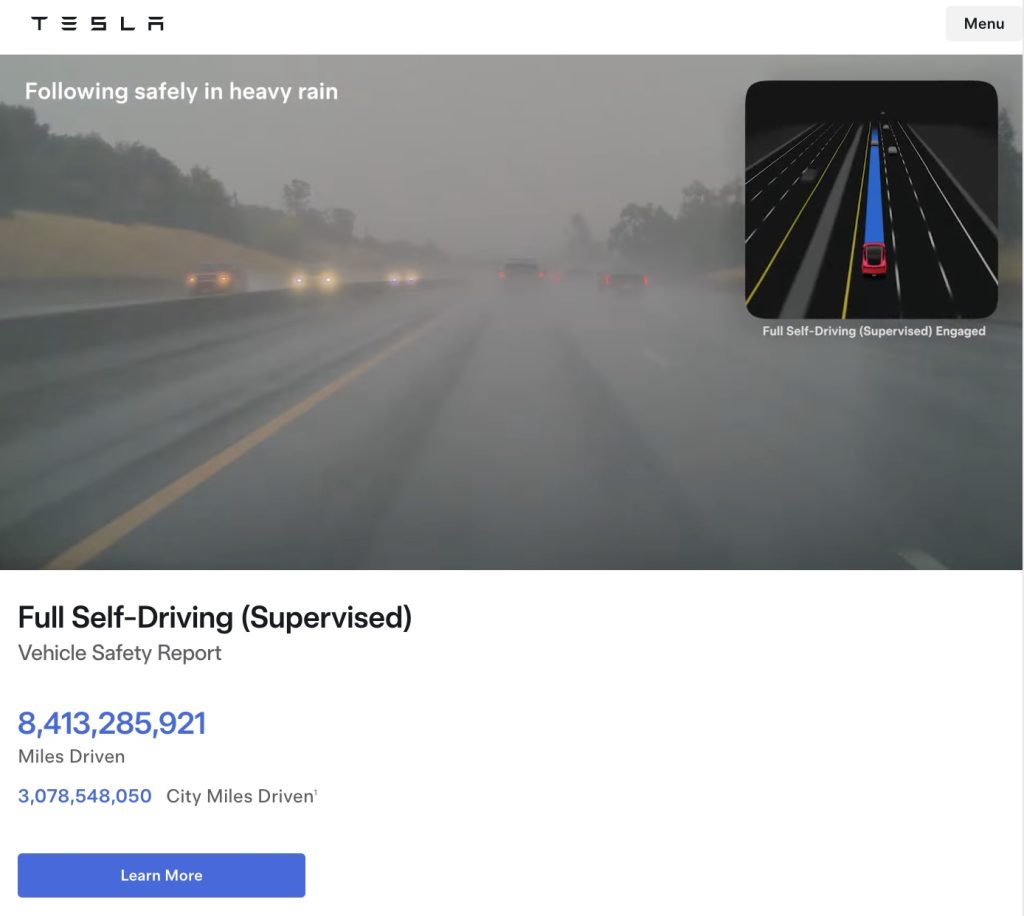
The milestone also brings Tesla closer to a benchmark previously outlined by CEO Elon Musk. Musk has stated that roughly 10 billion miles of training data may be needed to achieve safe unsupervised self-driving at scale, citing the “long tail” of rare but complex driving situations that must be learned through experience.
The growth curve of FSD Supervised’s cumulative miles over the past five years has been notable.
As noted in data shared by Tesla watcher Sawyer Merritt, annual FSD (Supervised) miles have increased from roughly 6 million in 2021 to 80 million in 2022, 670 million in 2023, 2.25 billion in 2024, and 4.25 billion in 2025. In just the first 50 days of 2026, Tesla owners logged another 1 billion miles.
At the current pace, the fleet is trending towards hitting about 10 billion FSD Supervised miles this year. The increase has been driven by Tesla’s growing vehicle fleet, periodic free trials, and expanding Robotaxi operations, among others.
With the fleet now past 8.4 billion cumulative miles, Tesla’s supervised system is approaching that threshold, even as regulatory approval for fully unsupervised deployment remains subject to further validation and oversight.
Elon Musk
Elon Musk fires back after Wikipedia co-founder claims neutrality and dubs Grokipedia “ridiculous”
Musk’s response to Wales’ comments, which were posted on social media platform X, was short and direct: “Famous last words.”
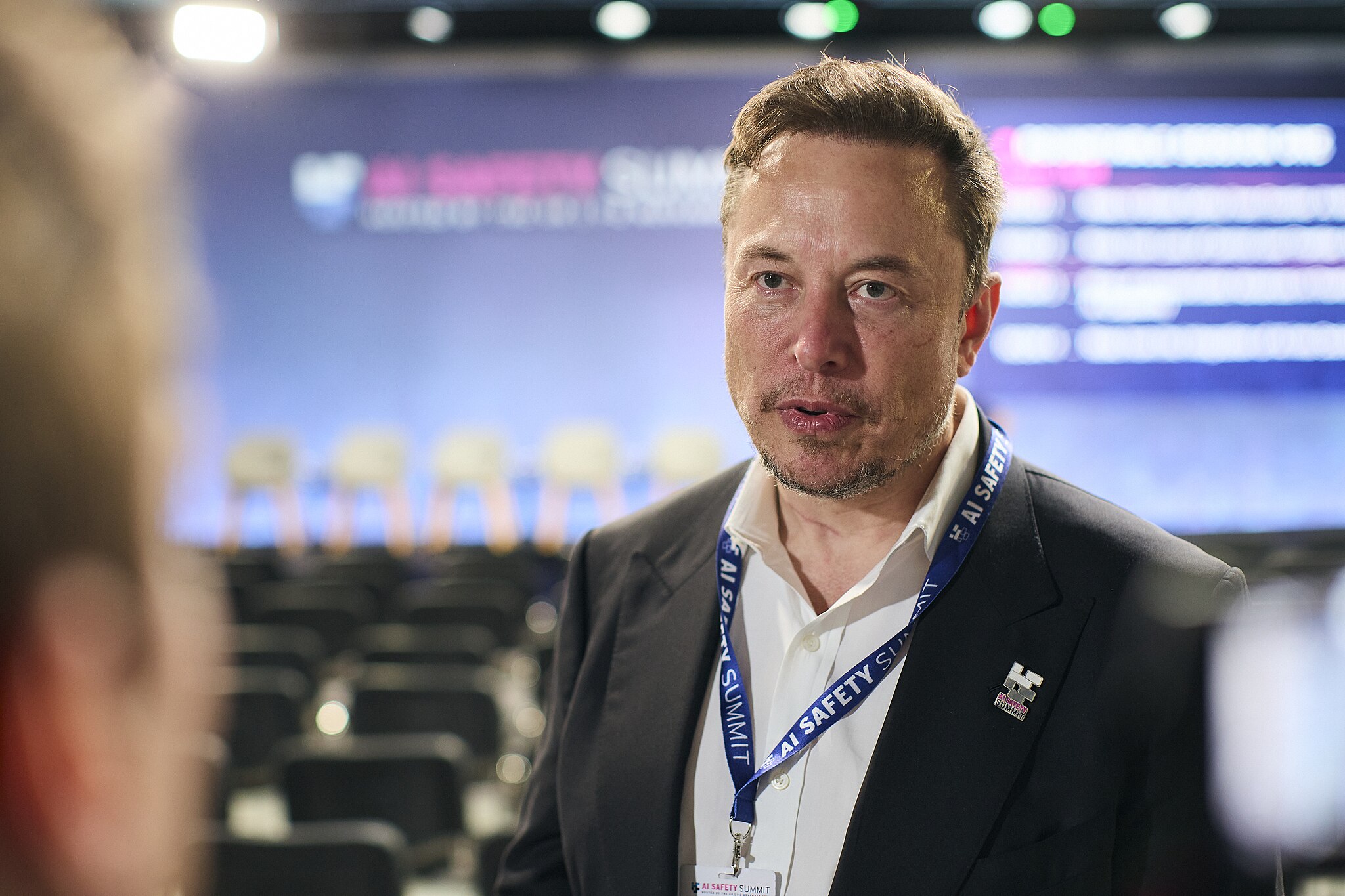
Elon Musk fired back at Wikipedia co-founder Jimmy Wales after the longtime online encyclopedia leader dismissed xAI’s new AI-powered alternative, Grokipedia, as a “ridiculous” idea that is bound to fail.
Musk’s response to Wales’ comments, which were posted on social media platform X, was short and direct: “Famous last words.”
Wales made the comments while answering questions about Wikipedia’s neutrality. According to Wales, Wikipedia prides itself on neutrality.
“One of our core values at Wikipedia is neutrality. A neutral point of view is non-negotiable. It’s in the community, unquestioned… The idea that we’ve become somehow ‘Wokepidea’ is just not true,” Wales said.
When asked about potential competition from Grokipedia, Wales downplayed the situation. “There is no competition. I don’t know if anyone uses Grokipedia. I think it is a ridiculous idea that will never work,” Wales wrote.
After Grokipedia went live, Larry Sanger, also a co-founder of Wikipedia, wrote on X that his initial impression of the AI-powered Wikipedia alternative was “very OK.”
“My initial impression, looking at my own article and poking around here and there, is that Grokipedia is very OK. The jury’s still out as to whether it’s actually better than Wikipedia. But at this point I would have to say ‘maybe!’” Sanger stated.
Musk responded to Sanger’s assessment by saying it was “accurate.” In a separate post, he added that even in its V0.1 form, Grokipedia was already better than Wikipedia.
During a past appearance on the Tucker Carlson Show, Sanger argued that Wikipedia has drifted from its original vision, citing concerns about how its “Reliable sources/Perennial sources” framework categorizes publications by perceived credibility. As per Sanger, Wikipedia’s “Reliable sources/Perennial sources” list leans heavily left, with conservative publications getting effectively blacklisted in favor of their more liberal counterparts.
As of writing, Grokipedia has reportedly surpassed 80% of English Wikipedia’s article count.
News
Tesla Sweden appeals after grid company refuses to restore existing Supercharger due to union strike
The charging site was previously functioning before it was temporarily disconnected in April last year for electrical safety reasons.
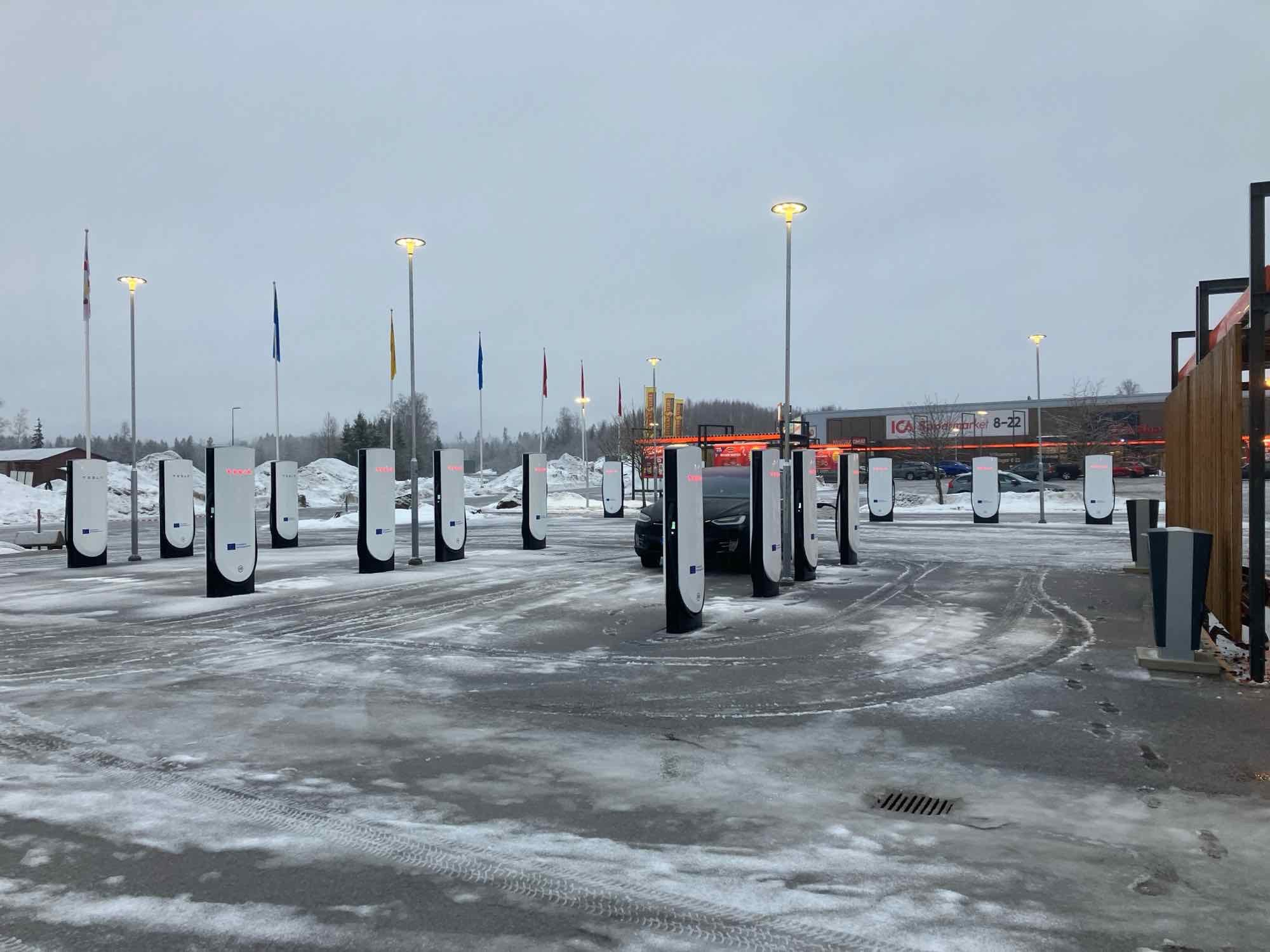
Tesla Sweden is seeking regulatory intervention after a Swedish power grid company refused to reconnect an already operational Supercharger station in Åre due to ongoing union sympathy actions.
The charging site was previously functioning before it was temporarily disconnected in April last year for electrical safety reasons. A temporary construction power cabinet supplying the station had fallen over, described by Tesla as occurring “under unclear circumstances.” The power was then cut at the request of Tesla’s installation contractor to allow safe repair work.
While the safety issue was resolved, the station has not been brought back online. Stefan Sedin, CEO of Jämtkraft elnät, told Dagens Arbete (DA) that power will not be restored to the existing Supercharger station as long as the electric vehicle maker’s union issues are ongoing.
“One of our installers noticed that the construction power had been backed up and was on the ground. We asked Tesla to fix the system, and their installation company in turn asked us to cut the power so that they could do the work safely.
“When everything was restored, the question arose: ‘Wait a minute, can we reconnect the station to the electricity grid? Or what does the notice actually say?’ We consulted with our employer organization, who were clear that as long as sympathy measures are in place, we cannot reconnect this facility,” Sedin said.
The union’s sympathy actions, which began in March 2024, apply to work involving “planning, preparation, new connections, grid expansion, service, maintenance and repairs” of Tesla’s charging infrastructure in Sweden.
Tesla Sweden has argued that reconnecting an existing facility is not equivalent to establishing a new grid connection. In a filing to the Swedish Energy Market Inspectorate, the company stated that reconnecting the installation “is therefore not covered by the sympathy measures and cannot therefore constitute a reason for not reconnecting the facility to the electricity grid.”
Sedin, for his part, noted that Tesla’s issue with the Supercharger is quite unique. And while Jämtkraft elnät itself has no issue with Tesla, its actions are based on the unions’ sympathy measures against the electric vehicle maker.
“This is absolutely the first time that I have been involved in matters relating to union conflicts or sympathy measures. That is why we have relied entirely on the assessment of our employer organization. This is not something that we have made any decisions about ourselves at all.
“It is not that Jämtkraft elnät has a conflict with Tesla, but our actions are based on these sympathy measures. Should it turn out that we have made an incorrect assessment, we will correct ourselves. It is no more difficult than that for us,” the executive said.








